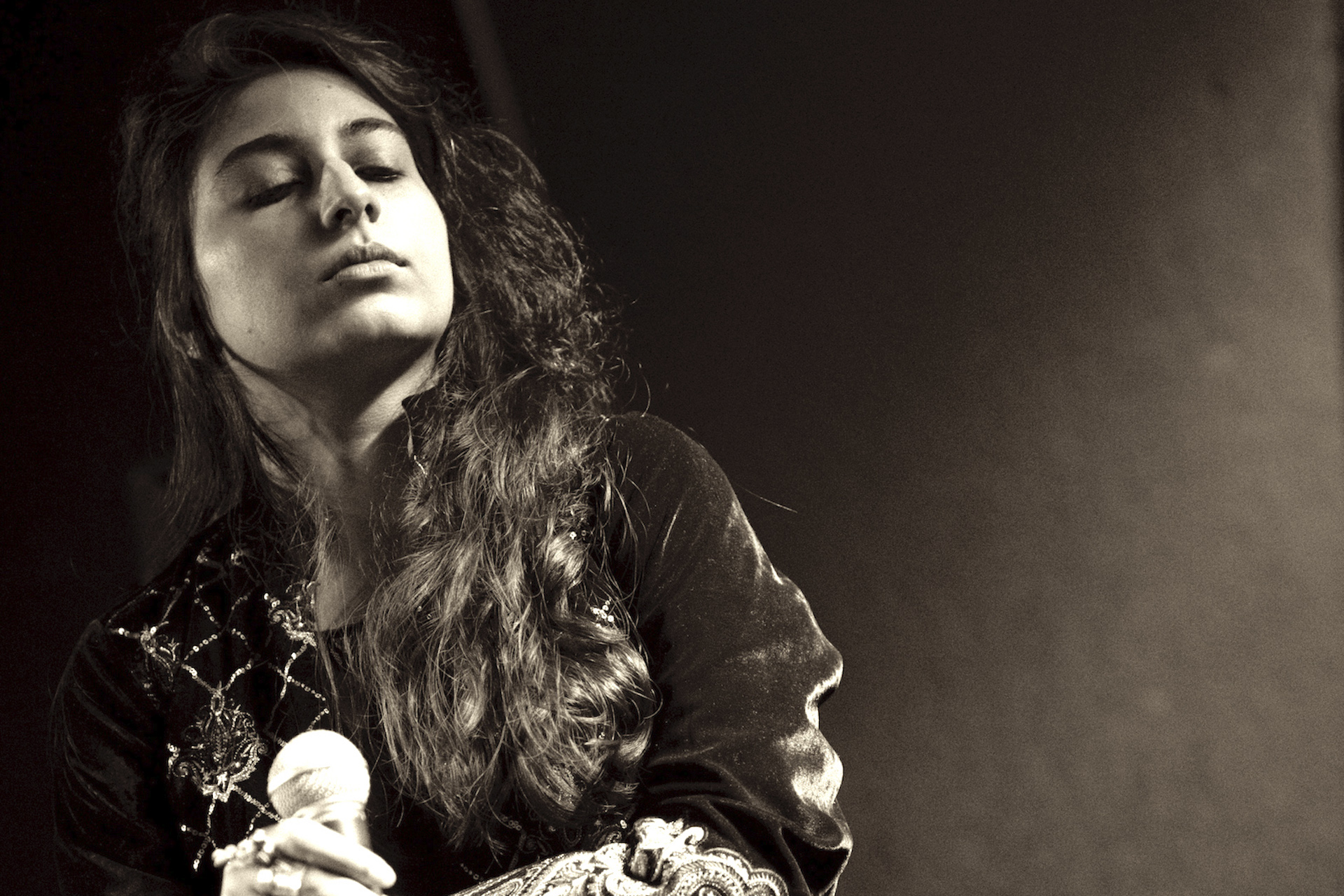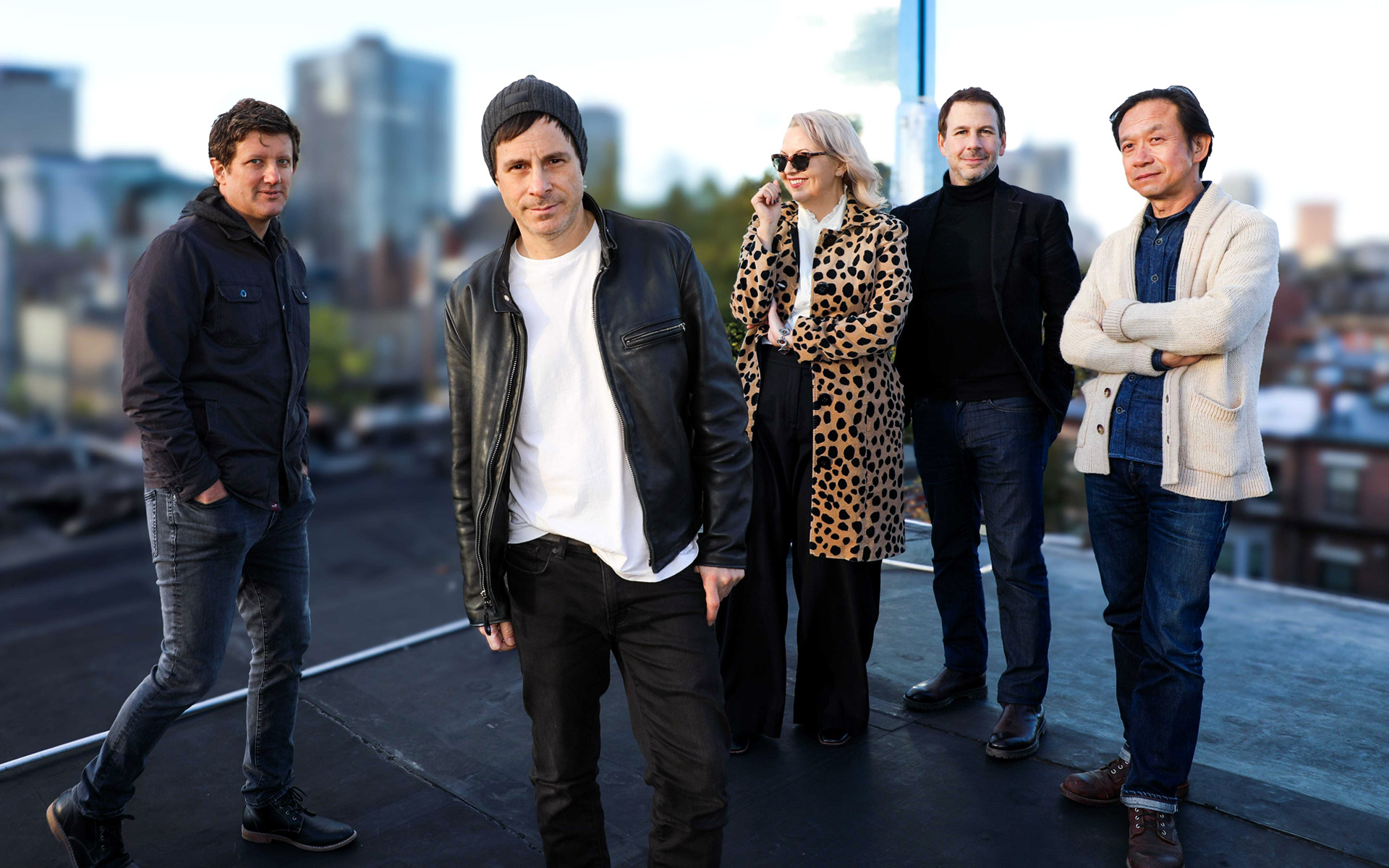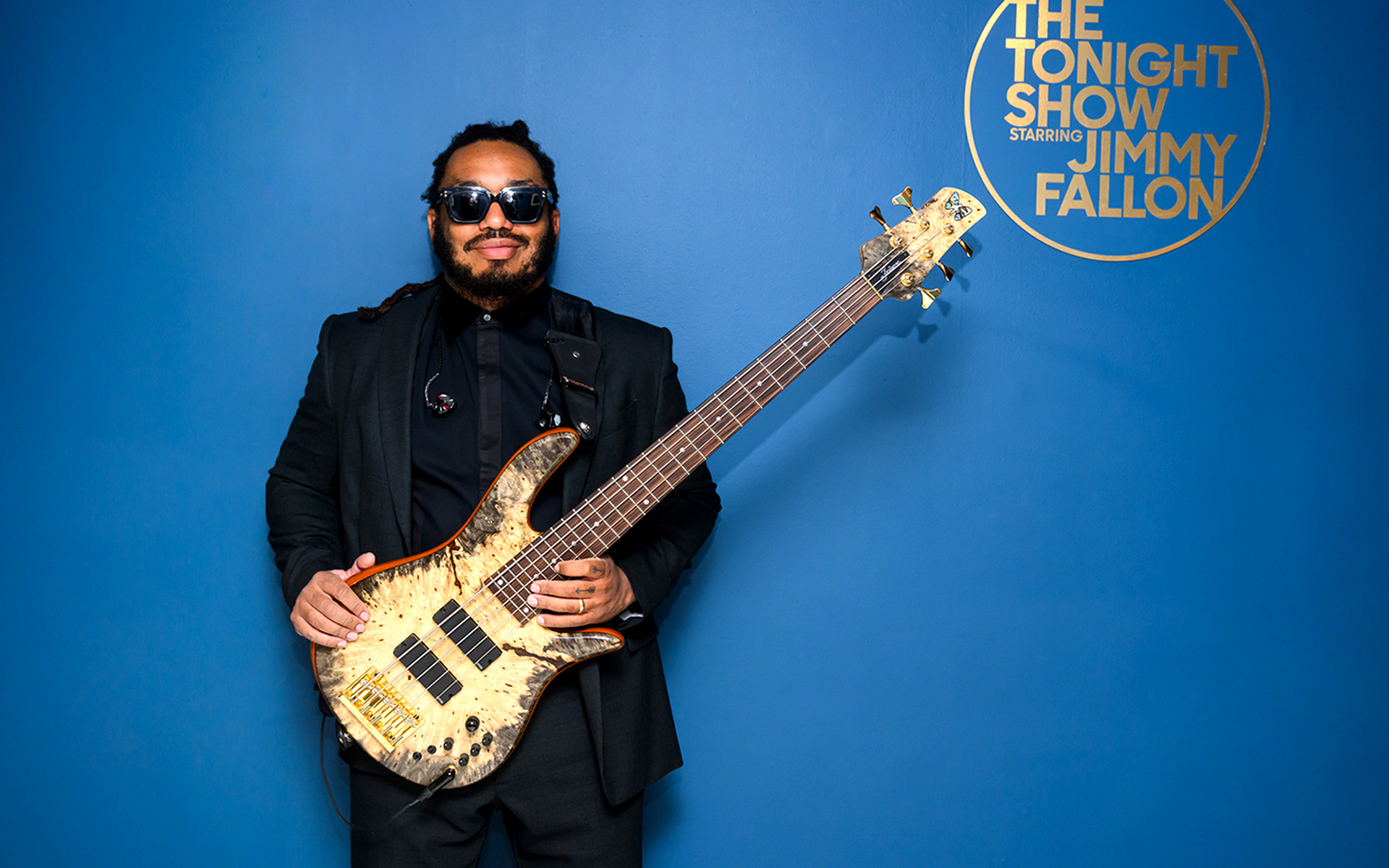Drop Nineteens photo by Larissa Doronina. The band is, from left, drummer Pete Koeplin, singer and guitarist Greg Ackell, singer and guitarist Paula Kelley, Zimmerman, and lead guitarist Moto Yasue.
When Steve Zimmerman decided to get a band together with his co-workers for a one-off “staff jam” night in 2016, he didn’t think he’d need much practice in advance. After all, Zimmerman, who is Berklee Online’s Director of User Experience, had previous experience in a band. As a founding member of the Drop Nineteens he had played bass for several years, touring with acts like PJ Harvey and Blur and sharing bills with acts like Smashing Pumpkins, the Cranberries, and Radiohead. Radiohead and the Cranberries were the openers on those bills, by the way. But this had all been in the 1990s.
“Boy, it’s not like riding a bike,” laughs Zimmerman. “You really have to re-teach yourself all over again.”
After the band broke up in 1995 their cult following grew steadily, as younger legions of bands glommed onto the Drop Nineteens’ distinctly American interpretation of shoegaze. In contrast to their European counterparts, who would stand like mannequins, looking down at their effects pedals, the members of the Drop Nineteens would smile onstage, bump into each other, and cover songs by Madonna and Barry Manilow, all while honoring other hallmarks of the shoegaze genre: ear-splitting feedback, waterfalls of guitar distortion, drop tuning, buoyant bass, and dreamy melodies.
Second Time Around
Zimmerman and Drop Nineteens singer and guitarist Greg Ackell stayed in touch over the years, both casually lamenting that they hadn’t really picked up their instruments since post-Drop Nineteens projects failed to take off. But after Zimmerman started playing music again, he couldn’t stop. Suddenly he was writing and recording, investigating and purchasing new musical technologies he had become aware of through his tenure at Berklee Online, and amassing a collection of guitars like he was making up for lost time.
In a subsequent conversation between he and Ackell, the two casually discussed what a Drop Nineteens song would even sound like in the third decade of the 2000s. Ackell came back to his old refrain that he hadn’t picked up a guitar in years. In fact, he confessed, he didn’t even own one. After the conversation ended, Zimmerman decided to overnight ship his old friend a Fender Jazzmaster.
‘That Is What We Do with It All Together’
Soon the two former bandmates were emailing audio files to each other. Eventually they had a few fully realized songs and started talking to other former Drop Nineteens members—singer and guitarist Paula Kelley, lead guitarist Moto Yasue, and drummer Pete Koeplin—and sharing the tracks with them. Those members contributed parts to the songs and soon enough Zimmerman and Ackell had an answer to their question about what a Drop Nineteens song would sound like in the third decade of the 2000s. Suffice to say they were pleased with the answer.
After several months they had written enough songs for a brand new album, and a number of labels were interested. Hard Light came out last fall on the Wharf Cat label to critical acclaim. Stereogum hailed the lead single, “Scapa Flow” as “magnificent, a welcome return.”
Pitchfork hailed the band’s “enduring relevance,” MOJO called the album “impressively elegant and expressive,” and Paste called it “elating.” Brooklyn Vegan listed the album at No. 15 on their list of the top 40 albums of 2023.
In just a few weeks the Drop Nineteens will convene together to start rehearsing for their first tour together in nearly 30 years.
“I’m nervous,” says Zimmerman, “but on the flip side, it’s all really exciting and I’m sure once we get into rehearsals and hear what it sounds like to be playing again, it’ll be alright. Opening the set with ‘Delaware,’ that’s just a blast to come in with that bass line and build up that suspense into the part where we all come crashing in, and then to get to hear Paula and Greg’s voices together again, that’s going to be exciting.”
But that’s not the only gratifying aspect of returning to the stage.
“It will also be thrilling—and humbling—to play to multiple generations for whom the music has significance to a particular period in their lives,” says Zimmerman. “For some, the music has endured, and been a mainstay since first listen. For others, the discovery of our music is more recent. Either way, the interesting thing is that there will be some young first-time attendees, some repeat attendees, and some who waited 30 years to see us.”






